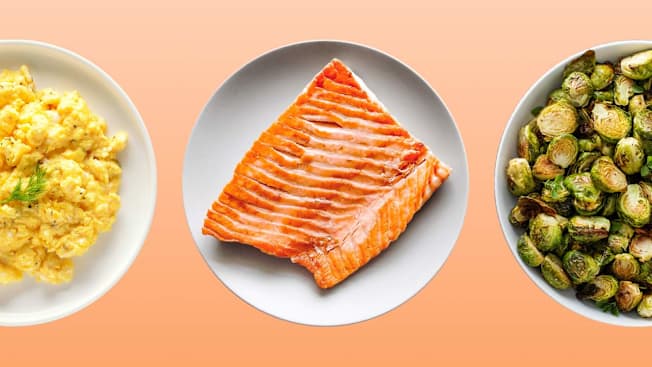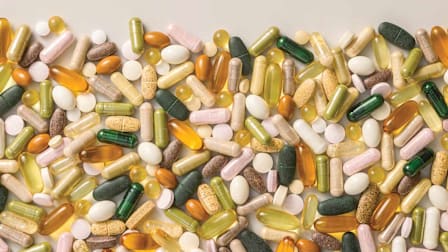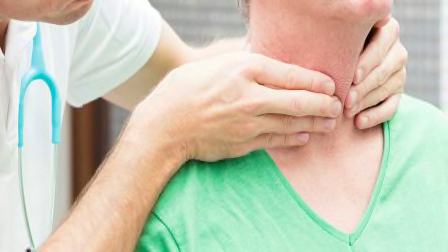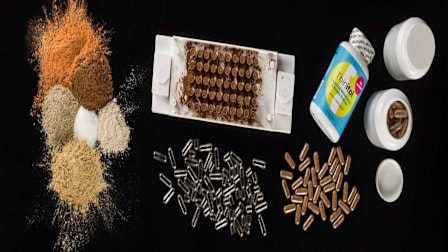The Benefits of Choline
This nutrient may help protect memory and more. Here's how to make sure you're getting enough.

You often hear that fish is brain food. True, but so are eggs, pork loin, and brussels sprouts. That’s because they’re rich in choline, a nutrient related to B vitamins.
"Choline is critically important for a variety of body and brain functions," says Ramon Velazquez, PhD, an assistant professor at the Arizona State University-Banner Neurodegenerative Disease Research Center in Tempe. It’s part of all cell membranes, and in recent years there’s been increasing evidence linking it to better cognitive function and even a lower risk of Alzheimer’s disease. But about 90 percent of people don’t get enough of it.
The Memory Effect
The brain needs choline to make acetylcholine, a neurotransmitter. "These [neurotransmitters] are chemicals that build and connect neurons [nerve cells] in the brain and body, and allow them to communicate with each other," says Thomas B. Shea, PhD, a professor of biological sciences at UMass Lowell.
How Much Choline Do You Need?
"Your body produces some choline, but it’s nowhere near enough to perform all of these critical functions," Velazquez says. The Daily Value for choline is 550 mg, and that needs to come from food or supplements.
"It’s not hard to get the choline you need through diet," Shea says. Many foods contain at least some, and there are several that provide substantial amounts (see below). "But sometimes older adults start eating fewer calories or less variety of foods. In that case, supplementation may be in order." Supplements can also be a good idea for people who eat a mostly plant-based diet because many of the foods highest in choline are animal products.
You might not be able to rely on a multivitamin to help meet your choline needs, though; some brands contain little to none of the nutrient. If you’re going to take a supplement, Shea recommends choosing one that has about 300 mg. As with any supplement, you should discuss it with your doctor beforehand.
Top Sources of Choline
You can find choline in a variety of foods, including:
- Beef liver, 3.5 oz. (426 mg)
- Egg, 1 large (169 mg)
- Beef sirloin, 3.5 oz. (103 mg)
- Edamame, 1 cup (87 mg)
- Turkey breast, 3.5 oz. (84 mg)
- Chicken thighs, 3.5 oz. (75 mg)
- Salmon, 3.5 oz. (79 mg)
- Broccoli or brussels sprouts, 1 cup (63 mg)
- Red potato, 1 large (57 mg)
- Kidney beans, ½ cup (45 mg)
- 2% milk, 1 cup (45 mg)
- Cottage cheese, 1 cup (37 mg)
- Plain low-fat yogurt, 1 cup (35 mg)
Editor’s Note: A version of this article also appeared in the December 2024 issue of Consumer Reports On Health.




